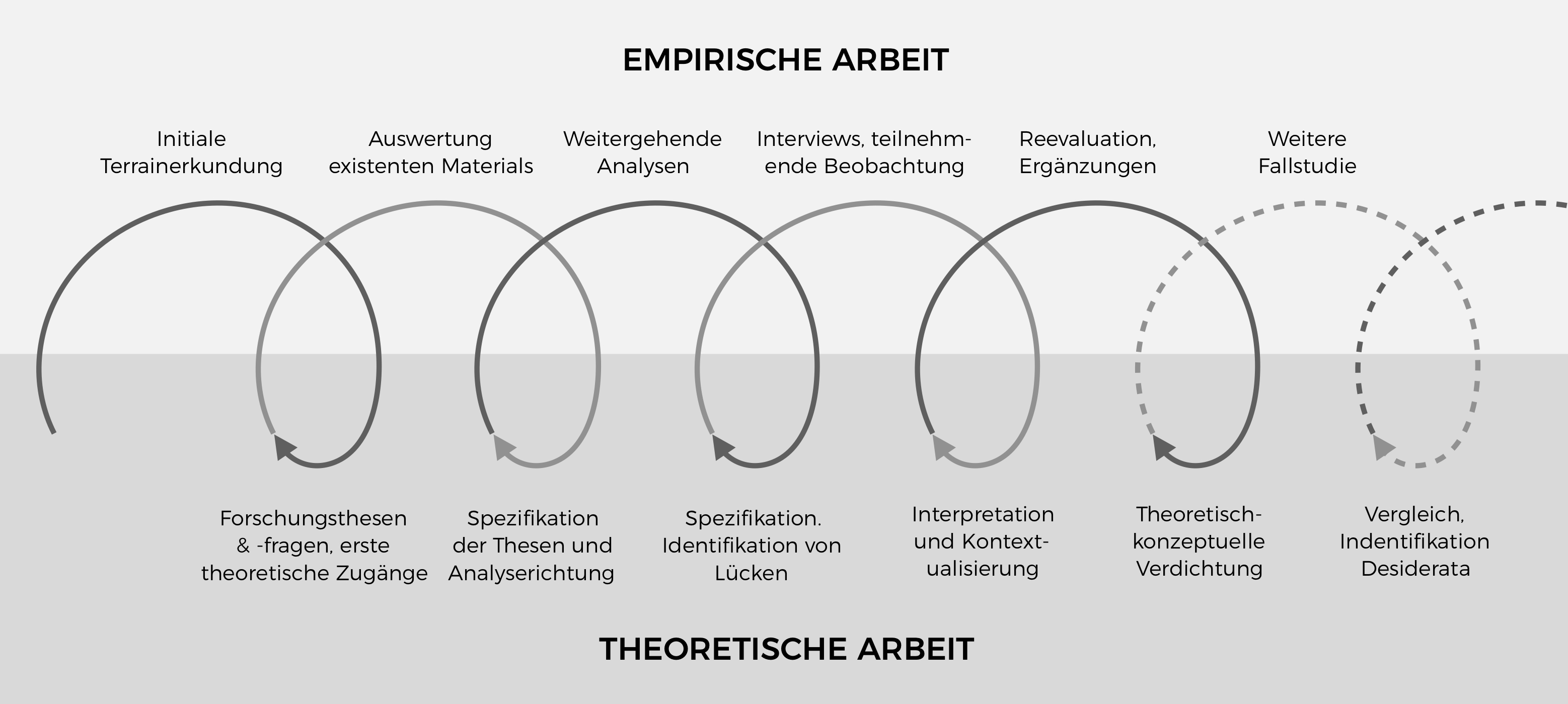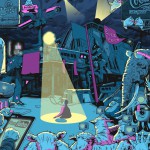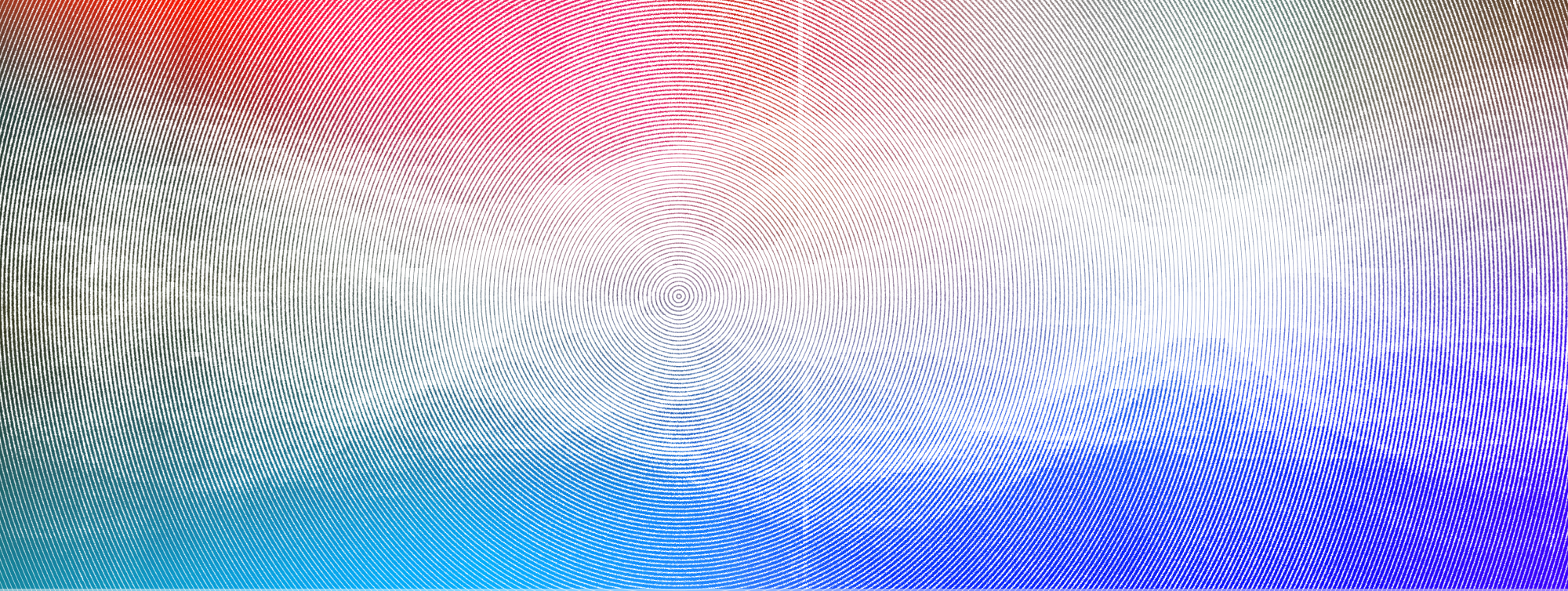Heute ist die Zukunft von gestern XII: »The End of Books« (Octave Uzanne 1894)
12. Januar 2013Der Schriftsteller, Verleger und Büchersammler Louis-Octave Uzanne (1851–1931) veröffentlichte 1894 im Scribner’s Magazine das Protokoll einer »after-supper prophecy«, in der er (wohl als einer der ersten Kommentatoren) das nahe Ende des gedruckten Buches postulierte und fast schon nebenbei die Erfindung des Walkmans und das Aufkommen von Audio- und Bewegtbild-Nachrichten sowie Home-Movies vorhersagte (»The End of Books« von Octave Uzanne, mit Illustrationen von Albert Robida, Scribner’s Magazine 16 (1894), S. 221–231).
Andererseits gingen seine Ausführungen in vielerlei Hinsicht aber auch an den konkreten technischen Ausformungen und Nutzungsweisen vorbei – und Uzanne konnte sich augenscheinlich kaum vorstellen, dass gedruckte Bücher und Bild- bzw. Tonmedien gleichzeitig, nebeneinander und komplementär bestehen können (wie es im 20. Jahrhundert der Fall war):
»[…] the elevator has done away with the toilsome climbing of stairs; phonography will probably be the destruction of printing. Our eyes are made to see and reflect the beauties of nature, and not to wear themselves out in the reading of texts […].
There will be registering cylinders as light as celluloid penholders, capable of containing five or six hundred words and working upon very tenuous axles, and occupying not more than five square inches all the vibrations of the voice will be reproduced in them […]. As to the electricity, that will often be found in the individual himself. Each will work his pocket apparatus by a fluent current ingeniously set in action; the whole system may be kept in a simple opera-glass case, and suspended by a strap from the shoulder. […]
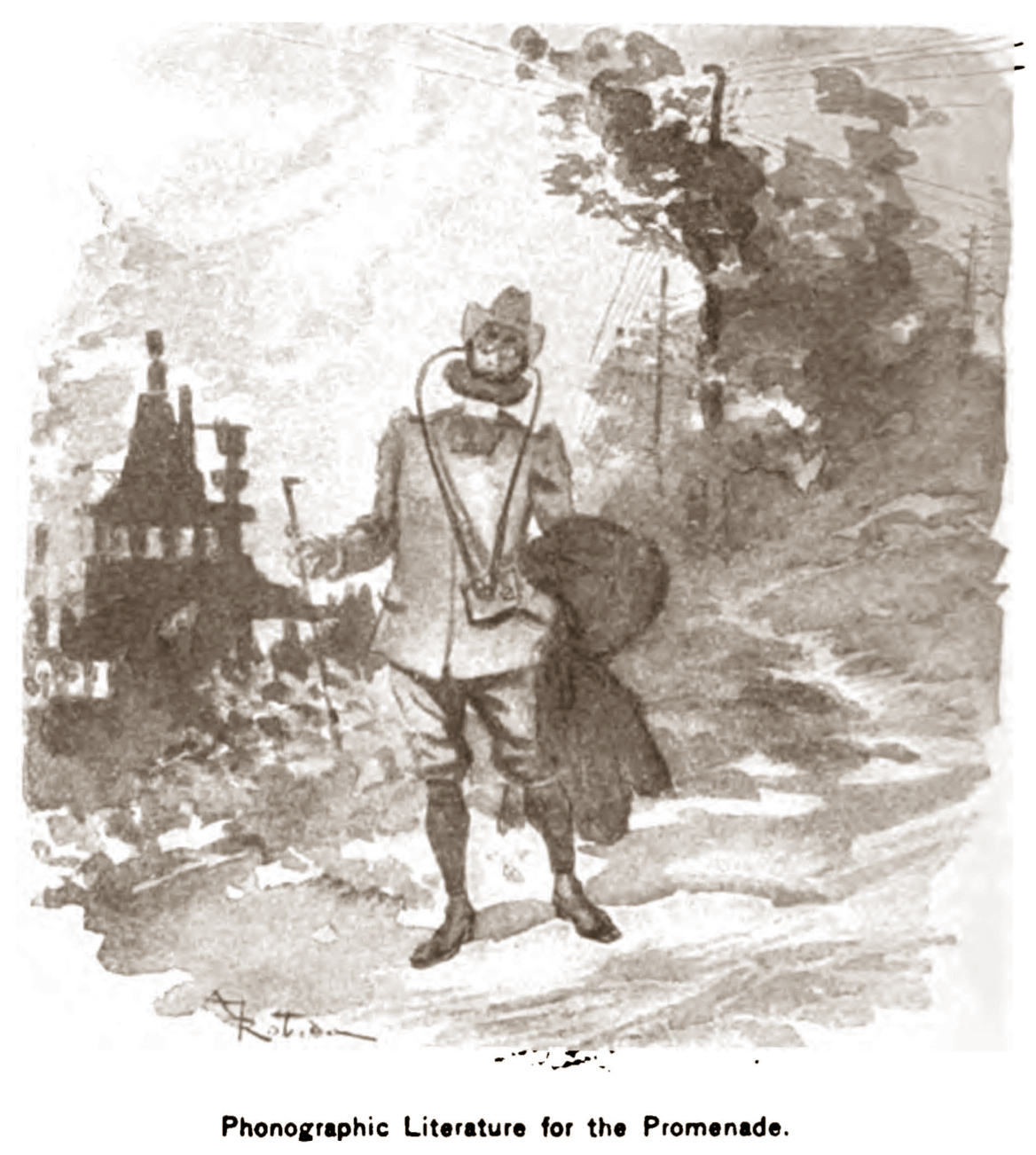
Men of letters will not be called Writers in the time soon to be, but rather, Narrators. […] Authors who are not sensitive to vocal harmonies, or who lack the flexibility of voice necessary to a fine utterance, will avail themselves of the services of hired actors or singers to warehouse their work in the accommodating cylinder. […]
The voices of the whole world will be gathered up in the celluloid rolls which the post will bring morning by morning to the subscribing hearers. […] Lying soft and warm upon their pillow they may hear it all, as if in a dream — foreign telegrams, financial news, humorous articles, the news of the day. Journalism will naturally be transformed; the highest situations will be reserved for robust young men with strong, resonant voices, trained rather in the art of enunciation than in the search for words or the turn of phrases […].
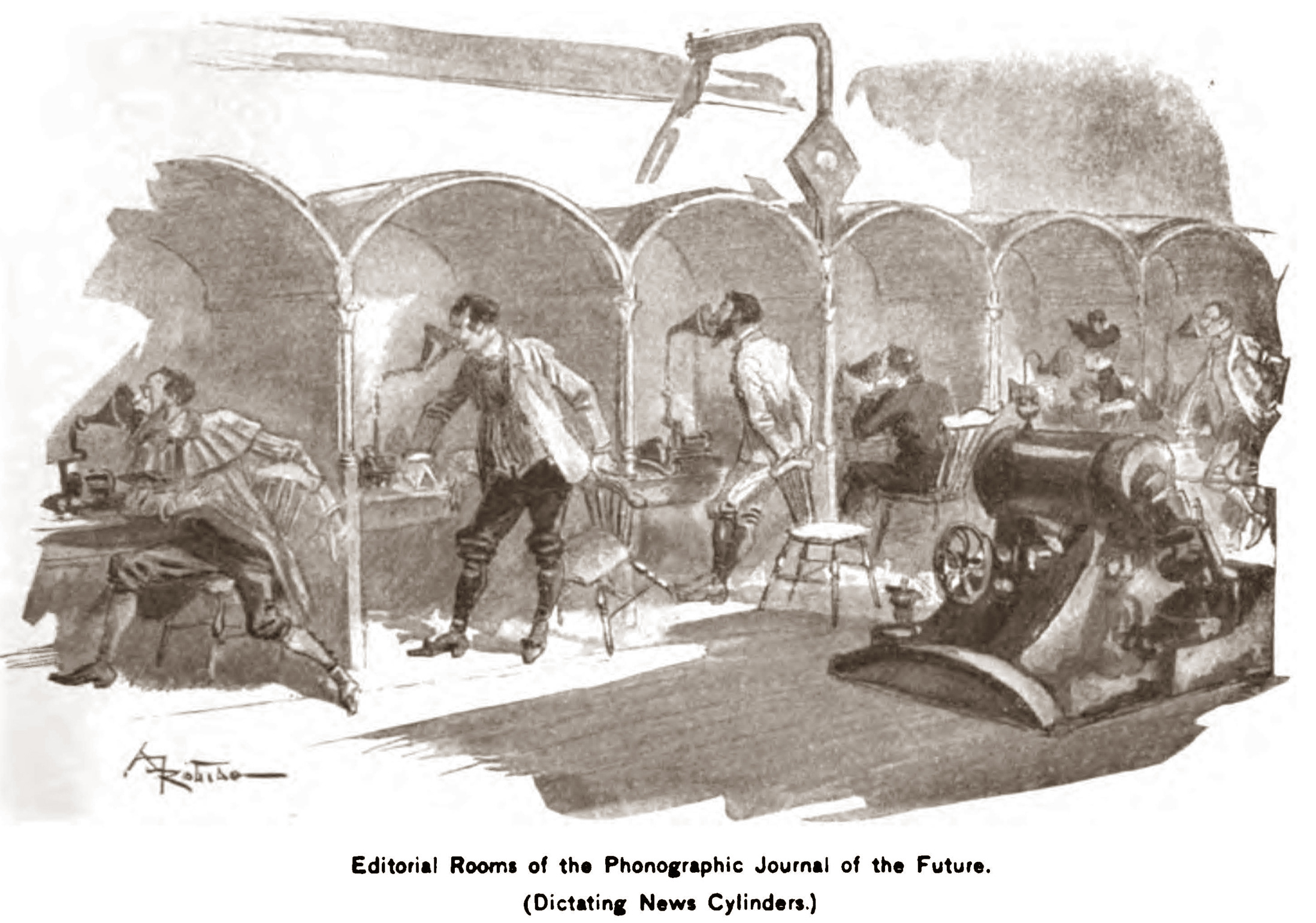
[…] illustrations will be abundant and realistic enough to satisfy the most exacting […]. The kinetograph will be the illustrator of daily life […] by a system of lenses and reflectors all the figures in action which it will present in photochromo may be projected upon large white screens in our own homes. Scenes described in works of fiction and romances of adventure will be imitated by appropriately dressed figurants and immediately recorded.
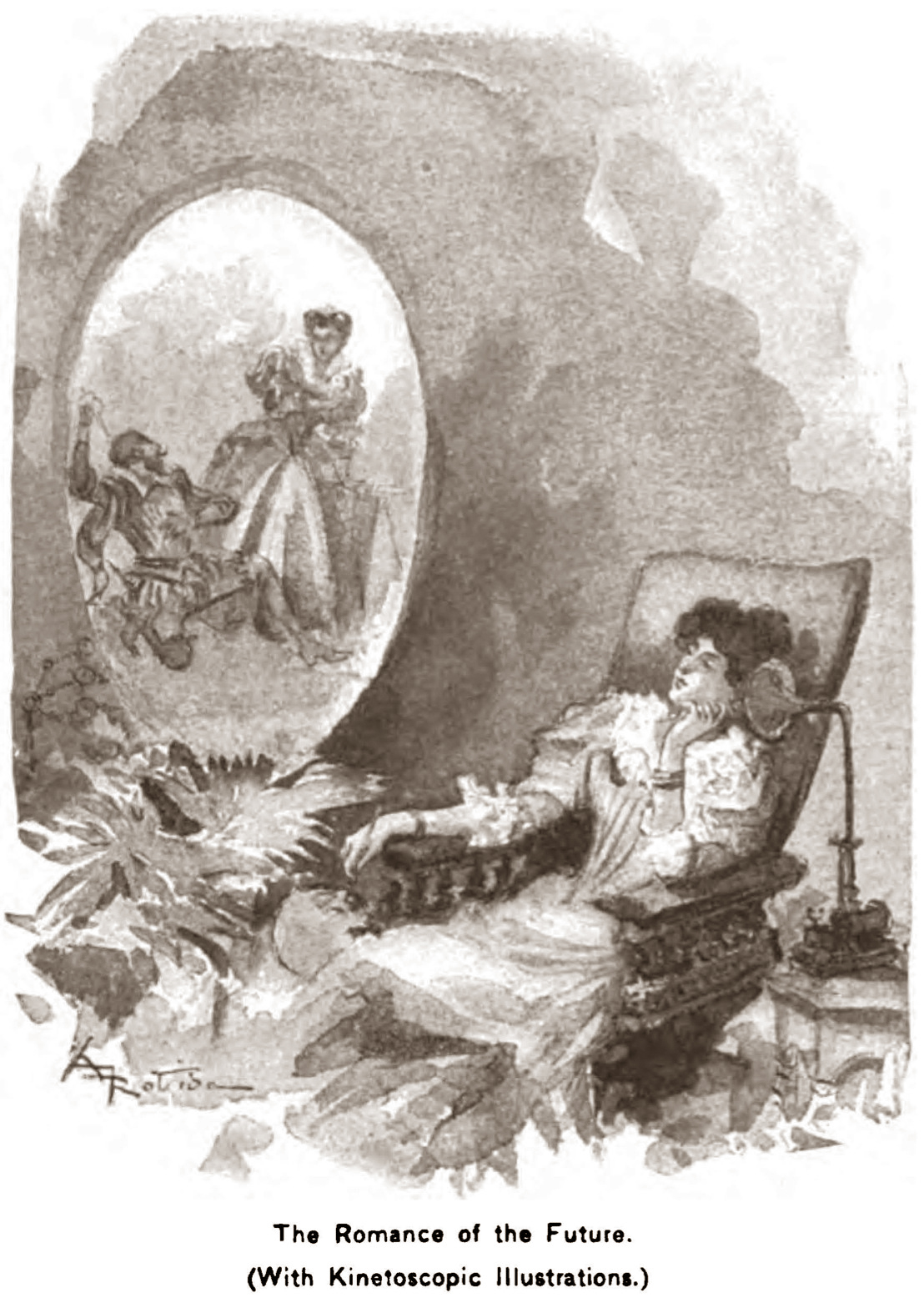
We shall also have, by way of supplement to the daily phonographic journal, a series of illustrations of the day, slices of active life, so to speak, fresh cut from the actual. We shall see the new pieces and the actors at the theatre, as easily as we may already hear them, in our own homes; we shall have the portrait, and, better still, the very play of countenance, of famous men, criminals, beautiful women. Be all this as it may, I think that if books have a destiny, that destiny is on the eve of being accomplished; the printed book is about to disappear.«
Ähnliche Artikel
- Heute ist die Zukunft von gestern — Teil III
- Heute ist die Zukunft von gestern VII: »Das universelle Informationsterminal« '72
- Heute ist die Zukunft von gestern XIV: Herr B. in der perfekten elektronisch gesteuerten Welt
- Heute ist die Zukunft von gestern XXI: »The Machine Stops« (E.M. Forster)
- Heute ist die Zukunft von gestern XV: Der Honeywell Kitchen Computer (1969)

